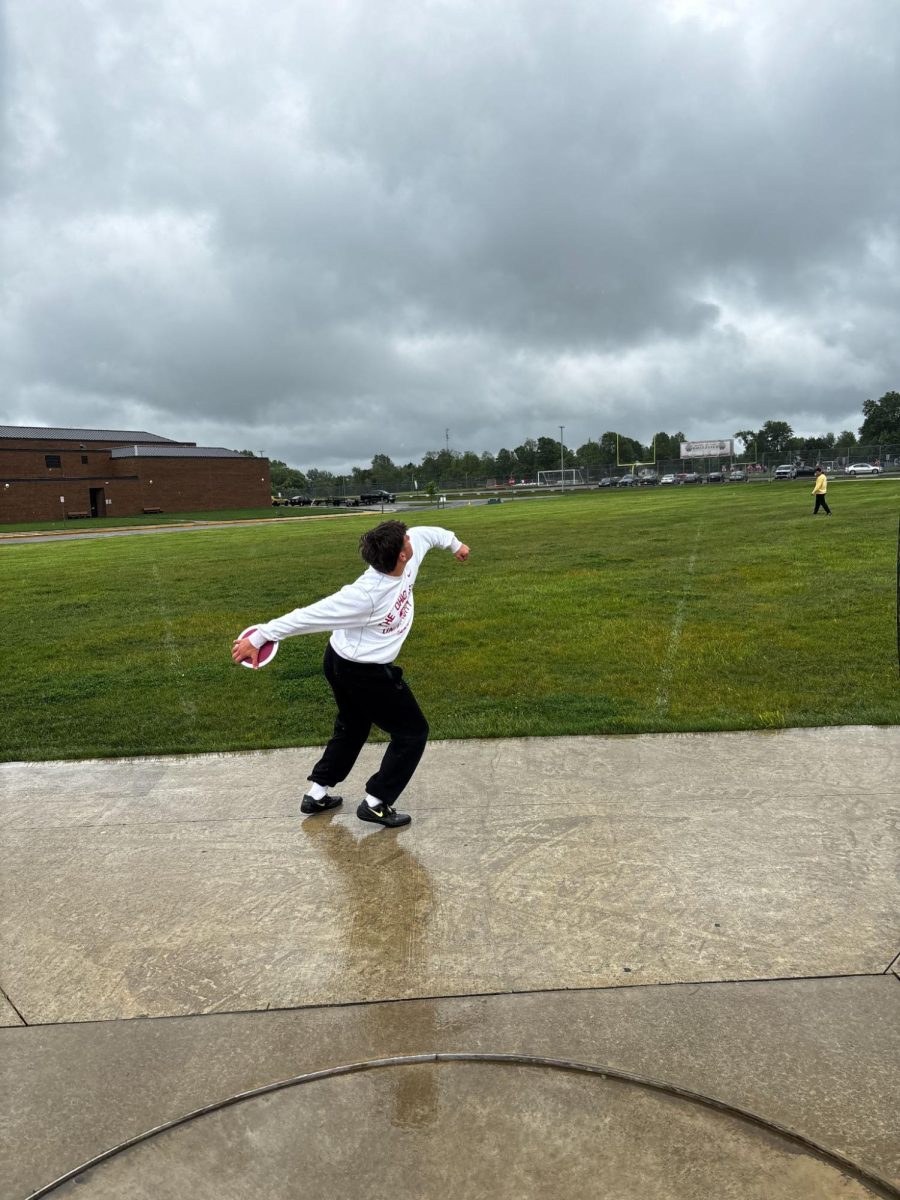States nationwide have decided to remove phones from schools over the last few months, creating a ban for their district.
In Ohio, Governor DeWine signed a bill that will require all school districts in Ohio to establish a policy about cell phone usage during the school day and to reduce screen time during school hours.
Florida passed a law prohibiting cell phone use within schools last year and more recently Indiana followed suit, by passing a law in March 2024 that also enacted a phone ban in their schools.
Many schools already have an established rule of non-academic cellphone use to be prohibited. Still, it is becoming a larger topic of discussion as states have established a law covering the issue of phone use in school.
Ohio Governor Mike DeWine spoke in April 2024 at the State of Address about his thoughts on this new legislation. DeWine stated that he supports the ban or limit of cell phones in classrooms.
“These phones are clearly detrimental to learning,” DeWine said at the State of Address. “They’re detrimental to our children’s mental health, and they truly do need to be removed from our classrooms in Ohio.”
With this recent widespread ban, many are wondering if this decision would affect Wadsworth City School District.
Currently, the rule of phones is up to the teachers. They can decide how they use cell phones in their classroom.
Mrs. Smith, an English teacher at WHS, has allowed some flexibility with phone usage but is contemplating her plan as she goes into the next school year.
“I do allow students to use their phones if they don’t have their Chromebooks,” Smith said. “I also allow them to use them when they are done working, but I am seriously considering changing that for next year. It’s always a battle; I can’t compete with cell phones.”
While many teachers have a set rule allowing smartphones to be used before class and when they are finished with their work, others have a strict no-phone policy where phones are to be kept in a pocket holder until the end of class or only be used after class when told by their teacher.
Mr. Yaggi, a Government and History teacher at WHS, also has a specific rule for phones in each class.
“In a normal full academic lab if everybody stays off their phones for the first half an hour they can use it for the last fifteen minutes [of class],” Yaggi said. “It’s pretty much the same for my Government class. If there’s some time at the end, I’ll let you guys use your phones if no one was using it during class.”
Christopher Sieber, Wadsworth High’s assistant principal, recognizes that due to the rule for phones varying from classroom to classroom, it can be difficult for the students and believes that if they enact a stricter phone rule it would have to be something all involved would need to be uniform in.
“For us, it needs to be something where we sit down with all the parties involved, teachers, kids, and say ‘Okay, this is what we want to do, and here’s the reason why,” Sieber said.
Though many of the parents/guardians, teachers, and administrators believe that the use of phones needs to change they also have concerns of drawbacks that may come along with it.
Many administrators and teachers agree that there is no benefit to students having phones. Instead, they believe that students having a break from their phones during the school day could be very beneficial in many ways such as communication with their peers, completing school work, and anything that the distraction of phones could disrupt.
“Cell phones are the number one distraction and students can’t separate themselves from them,” Smith said. “I think students would be more present in their learning and their interaction with others.”
Additionally, the staff worries about the effect that the constant use of social media without breaks will have on students. Teachers believe that using and depending on phones less could lead to less conflicts with students and other students. Sieber brought forward the idea that many students have ‘keyboard courage’, where they feel more confident saying things that are rude or confrontational when they are hiding behind a screen and do not have to talk to that person face-to-face.
“If I [had] beef with somebody [when I was in] school, it ended when I left the school building because they didn’t have any way to get a hold of me,” Sieber said. “They didn’t put it on Snapchat, they didn’t put it on Instagram, or whatever social platform kids have.”
With social media platforms and the ability to contact other students outside of school with more than just a phone call, simple conflicts that arise in school can become a much bigger issue because the conflict can continue once the students go home.
“Social media is the biggest monster,” Sieber said.
Various questions arise if this is enacted, including how parents will get ahold of their students in the case of an emergency, whether this will work, and how they will ensure smartphones are kept away.
Parents want to be able to reach their children in the case of emergency but Sieber notes that just like it was when children didn’t have phones, there is a plan in place and will always be a way for parents to get ahold of their student if needed, especially in an emergency.
“When I was kid, there were no cell phones,” Sieber said. “Still somehow, someway, when we had stuff going on when we were kids, we were able to get a hold of our parents.”
Despite phone bans spreading quickly around the country, the Board of Education has not yet had any conversation about changing their phone policy at the time. Currently, students are banned from using phones to record audio or visuals without proper consent, along with using their cell phones to cheat or to bully.
The full language of Wadsworth City School’s policy can be viewed here.
“There has been no conversation with the Board of Education about considering changes to the said policy at this time,” said Wadsworth City Schools Superintendent Dr. Andrew Hill. “We are aware of the recent conversation surrounding this topic in Columbus.”
Hill is in favor of local control on topics such as phone bans in schools.
“I don’t think it is the state’s place to make a decision for local school districts on this topic,” Hill said.

![Wadsworth's Class Of 2025 Walks At Graduation Ceremony [Photo Gallery]](https://wadsworthbruin.com/wp-content/uploads/2025/05/IMG_9018-1-1200x800.jpg)




































